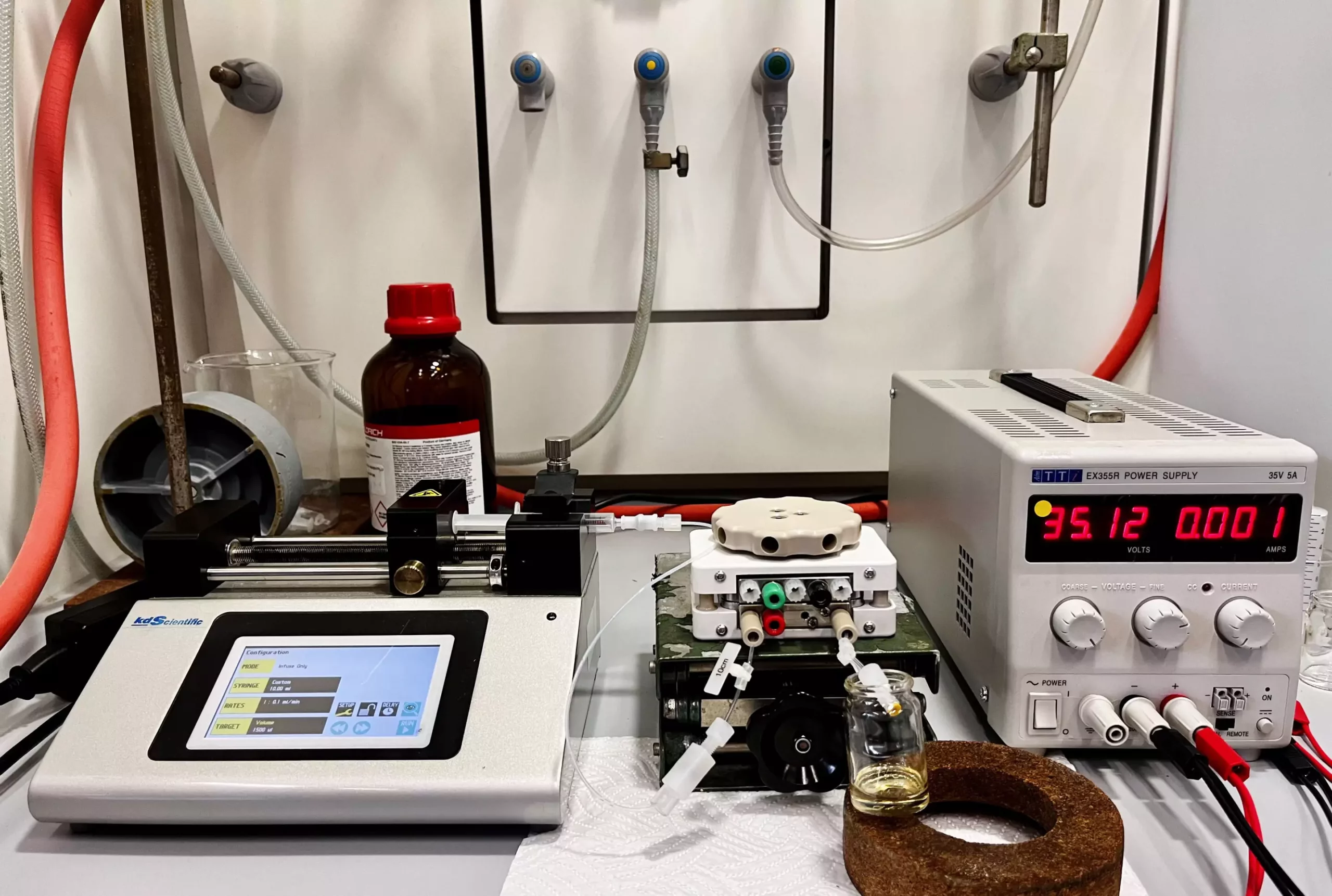In order to meet the growing needs of society, chemists are constantly striving to develop new synthesis methods to obtain products that do not naturally exist. Organic synthesis, the creation of complex organic compounds from simpler reagents, is essential for the production of drugs, polymers, agrochemicals, pigments, and fragrances. However, controlling and optimizing these successive reactions pose significant challenges. A research group at the University of Geneva (UNIGE), in collaboration with Cardiff University, has made a groundbreaking discovery by using an external electric field to control and accelerate chemical reactions. This innovative approach has the potential to revolutionize organic synthesis and enable the development of greener and more controllable synthesis methods.
Chemical reactions involve the movement of electrons between different places in a molecule. These negatively charged elementary particles can be influenced by an external electric field, offering the possibility of electrically controlling chemical reactions. However, previous attempts to implement this approach have faced limitations and yielded poor results. Professor Stefan Matile from UNIGE’s Faculty of Science and his counterpart, Professor Thomas Wirth from Cardiff University, have successfully activated an organic chemical reaction simply by using a simple electric field.
To achieve their breakthrough, the research team designed an electrochemical microfluidic reactor. This reactor takes the form of a small box where the reaction mixture circulates between two electrodes. The electrodes, coated with carbon nanotubes, generate the required electric field. By flowing through the reactor, the reactants weakly interact with the carbon nanotubes, exposing them to the electric field and inducing electronic polarization in the molecules. This activation leads to the desired chemical transformation.
Traditionally, chemists have relied on complex, multi-step strategies involving numerous intermediates to achieve high yield and create desired chemical bonds. However, these strategies consume significant resources and energy. The new electrical device proposed by Professors Matile and Wirth has the potential to simplify these strategies and reduce the carbon impact of chemical syntheses. With its simplicity in design and ease of control, this device could pave the way for greener and more controllable production of drugs, fuels, and plastics.
While the electrochemical microfluidic reactor represents a significant leap forward in controlling chemical reactions, there is still work to be done to fully unlock its potential. Fundamental advances are needed to optimize the device and explore its wide range of applications. However, if these challenges can be overcome, this innovative method could soon be implemented in organic chemistry laboratories around the world, transforming the way new molecules are synthesized.
The ability to control and accelerate chemical reactions with an electric field opens up a world of possibilities for new product development. The impact of this discovery extends beyond the realm of green chemistry and environmental sustainability. The simplification and controllability of chemical syntheses could have significant implications for the pharmaceutical industry, fuel production, and the creation of biodegradable plastics. With further research and development, the vision of a greener and more efficient synthesis process is within reach.
The research conducted by the team at the University of Geneva and Cardiff University brings us one step closer to a revolution in the field of organic synthesis. By harnessing the power of an external electric field, chemists may soon have the ability to control and accelerate chemical reactions with unprecedented precision. This groundbreaking discovery has the potential to transform the way new molecules are synthesized, leading to greener and more controllable production of essential products. The journey towards a more sustainable future for chemistry has just begun, and the possibilities are electrifying.


Leave a Reply